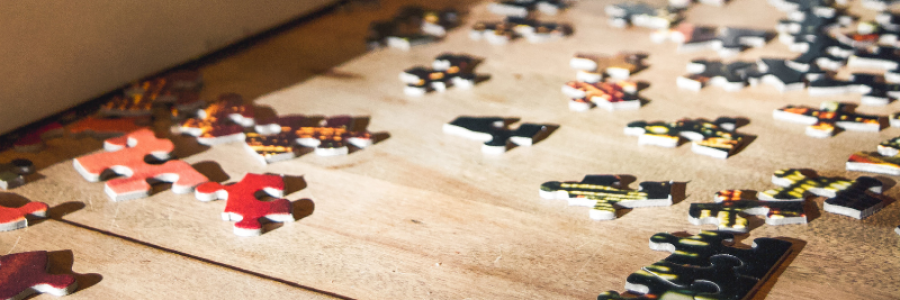As dementia progresses, many activities and hobbies may become too difficult or frustrating for a person to continue. But that doesn’t mean that seniors with dementia should be left to sit and do nothing. Providing regular access to enjoyable pastimes is an important part of successful dementia care.
If you are a caregiver for someone with dementia, you should know that enrichment tasks not only help prevent boredom but provide therapeutic value as well. Engagement with something that feels satisfying helps reduce anxiety, depression, anger, and agitation. In some cases it can even reduce confusion and sundowning. Even though activities for seniors with dementia may look different, they are invaluable.
Look for activities that provide interest without a high risk of failure or frustration. This may mean different things for different people, but we’ve selected a list of ideas to start with.

Helping Around the House
Research suggests that seniors who feel they are making a contribution to their environment have higher quality of life than those who don’t. Performing simple household tasks can help a person with dementia feel that they are contributing, or allow them to relive memories of caring for their families.
Don’t focus on doing things the “right” way. Rather, provide opportunities to go through a process that feels meaningful to your loved one. These activities often provide a range of textures that are therapeutic to explore as well. Examples may include:
- Folding laundry like dish cloths or t-shirts
- Sorting mixed ribbons, fabric scraps, or buttons
- Screwing and unscrewing hardware from a board
- Caring for houseplants (watering, dusting, wiping, trimming dead foliage, etc.)
- Arranging live or silk flowers
- Measuring ingredients for baking
- Polishing and sorting silverware
- Washing windows
- Dusting
- Cutting out or organizing coupons
Playing Games
Games are an enjoyable pastime for everyone. Many games are still fun for seniors with dementia. Avoid games that require a lot of math or strategic reasoning that may cause stress.
Not only do games provide social stimulation, many board games offer therapeutic benefits. These benefits include practice with sorting, matching, short-term memory activities, pattern recognition, sequencing, and more. Games like these are satisfying and stimulating, and can help slow the pace of cognitive decline when played regularly.
- Simple board games like Chutes and Ladders, Life, or checkers
- Matching card games, such as solitaire or go fish
- Jigsaw puzzles or photo puzzles
- Exploring with pattern blocks such as tangrams
- Word games such as word search or large print crossword puzzles
Creative Expression
Even if your loved one was not previously interested in arts or crafts, creative expression is incredibly important for brain health. Arts and crafts activities for seniors with dementia should not be too structured or goal-oriented, as this can cause stress and anxiety. Instead, focus on the process more than the outcome. Non-verbal forms of self-expression take on a new dimension and importance as spoken communication grows more difficult.
Exploring with colors, textures, and even smells also provides mental stimulation that can stir up old memories and increase cognitive function. Try many different varieties of creative expression and look for those that elicit a positive response.
- Writing or drawing in a journal
- Cutting and pasting pictures or words from magazines
- Modeling with clay or play-dough
- Painting with watercolor or acrylic paints
- Drawing with markers or colored pencils
- Coloring books
Try New Things Regularly
As dementia progresses, it can cause changes not only in memory but in mental processing, communication, and even personality. Sometimes, families are surprised to find that their loved one enjoys activities now that they never used to.
Don’t be afraid to try new things, or to revisit activities that previously didn’t “click.” Memory often relies on cues and triggers. A color, a smell, a texture, a song, or even a muscle memory can all stimulate recollections and bring back ideas and memories that may have seemed lost.
Are you caring for a loved one with dementia and looking for additional help and support? Click here to read about our support groups and other resources for families dealing with a dementia diagnosis.


